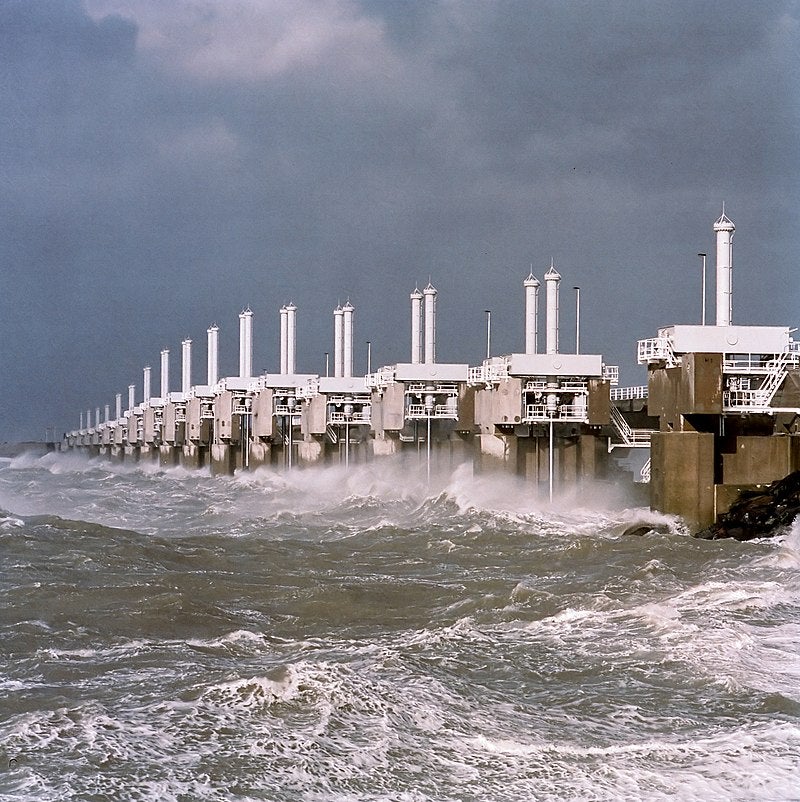By Philip Orton, Research Associate Professor, Stevens Institute of Technology
Due to the increasing frequency and risk of coastal storms and flood disasters, many governments and decision makers are looking to construct gated storm surge barriers.
The U.S. Army Corps of Engineers is recommending these large steel and concrete barriers be built across entrances to 11 U.S. estuaries, enabling closure during storm surges to minimize coastal flooding. However, many scientists are wary of the potential effects these barriers could have on coastal ecosystems, leading many advocates to push for a precautionary approach or their outright rejection.
Published in the scientific journal Earth’s Future and supported in part by funding from Environmental Defense Fund, colleagues and I recently formulated a new research agenda focused on the intersection between the increased use of storm surge barriers and the resulting estuary impacts. These are three key takeaways from our research:










